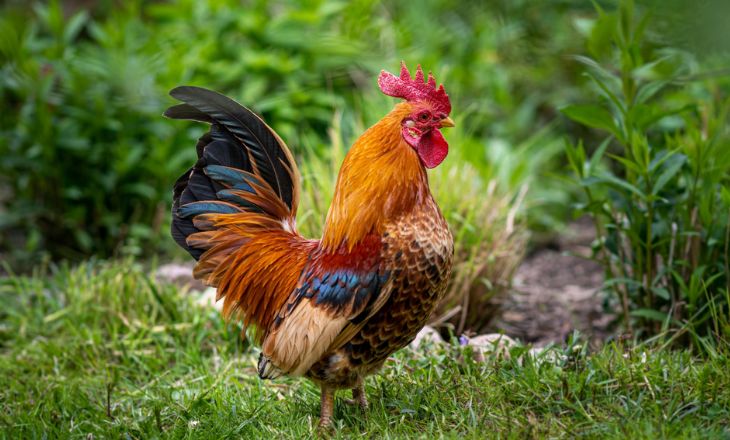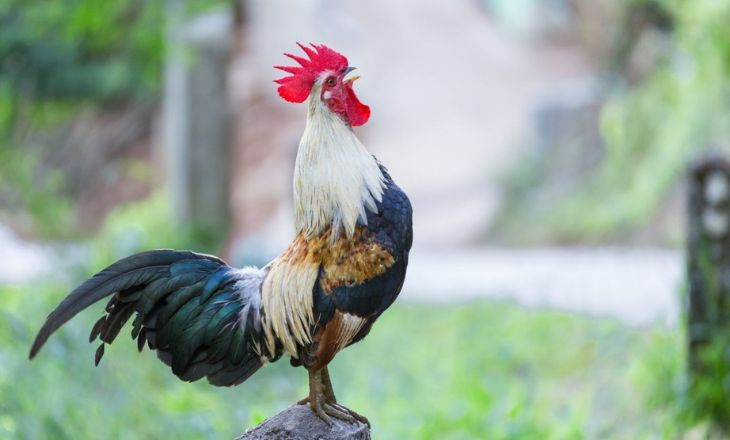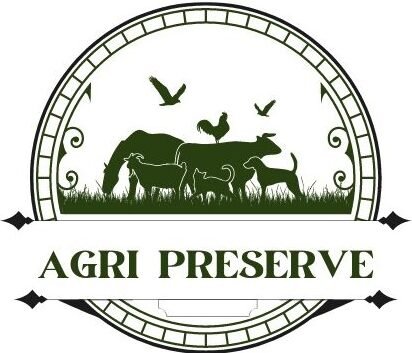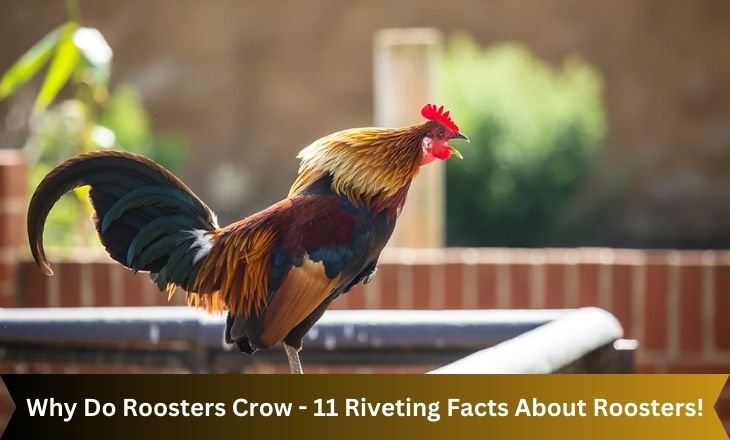Why do roosters crow? Discover the reasons behind their morning calls as the sun rises and what it means for us. Roosters wake us up and have interesting behaviors and social lives that tell us much about them.
This article will share 11 fascinating facts about roosters that will spark your interest and help you appreciate these colorful birds. From their unique ways of communicating to the surprising reasons they crow, each fact reveals the complexity of this simple act.
So grab your coffee and get ready to learn more about roosters; there is much more to these birds than you think!
Why Do Roosters Crow
Roosters crow for many reasons, not just to signal dawn.
- They use their loud crows to show who’s in charge.
- In their group, they show they are ready to protect against possible dangers.
- A rooster crows to talk to other chickens about food or danger.
Recent studies have found that roosters change their crowing based on weather and light. This shows that roosters may have a more advanced communication method than we knew. Their crow is a wake-up call and a complex expression important for their social interactions.

The Early Crow
The rooster crows early in the morning to start the day. It’s a signal to wake up and be active. Roosters don’t just crow in the morning; they do it throughout the day for different reasons.
They crow in response to danger, to find food, or to show who’s boss. Research shows that a rooster’s body clock, not just the sunlight, decides when it crows. This behavior shows how roosters are connected to nature’s rhythms.
Different roosters have different crowing styles, revealing their unique voices. The rooster’s crow starts the day by revealing its interesting history and behaviors.
Why Do Roosters Crow In The Morning
Roosters crow at dawn to show they are awake and ready to protect their territory. It’s a way for them to establish dominance and leadership within the flock. This behavior helps maintain order and boosts the rooster’s confidence. When you hear a rooster crowing in the morning, it’s just doing its job as a leader and protector of the group.
Why Do Roosters Crow At 3 AM
Roosters crow loudly, which has interested and annoyed people for a long time. But why do they always crow at 3 am? The reason is their instincts and biological rhythms. Roosters crow at dawn to show their territory and dominance over other roosters. It also tells the other chickens it’s time to wake up.
When you hear a rooster at 3 a.m., it’s just nature’s way of saying a new day is starting, even if it feels too early for most people.
Why Do Roosters Crow At Night
Roosters crow at night to mark their territory and scare away enemies. Crowing in the dark helps them show dominance and protect their group. Loud noises or bright lights can disrupt their sleep cycle, confusing the time. Roosters may crow at night to reset their internal clock.
Temperature or air pressure changes can also trigger crowing as roosters feel worried or threatened.
Why Do Roosters Crow All Day And Night
Roosters crow to show they’re in charge and mark their territory. This helps avoid fights and keep order in the group. They can sense when it’s almost morning and start crowing. They also crow in response to noise or danger to protect themselves and their hens.
Roosters’ crowing is more than just a wake-up call; it shows how they interact and survive in the wild.
Do Roosters Have A Penis
Roosters do not have a penis like mammals. Instead, they have a part called the papilla that appears during mating. When roosters and hens mate, they perform a cloacal kiss. This means they bring their cloacas, which are used for waste and reproduction, together to transfer sperm without direct contact.
This method may seem odd, but it shows how birds have adapted. Birds use this efficient system to avoid injury during mating. It highlights how different species find unique solutions to similar reproductive challenges, showcasing nature’s creativity.
Understanding these details helps us appreciate poultry behavior and important concepts in evolutionary biology about diversity and specialization.
How Loud Is A Rooster Crow
A rooster’s crow is very loud, reaching 90 to 125 decibels, depending on the breed. This sound is as loud as a rock concert or a chainsaw! The crow wakes farmers in the morning and helps roosters mark their territory. In the bird world, louder crows show strength and health, warning other birds to stay away.
Roosters also change their calls based on where they are. In thick forests, they make lower sounds that travel better through trees. In open fields, they use higher-pitched crows that can be heard from far away. This ability to adapt shows how roosters evolve in different environments and connect their biology to their surroundings.
Can You Silence A Rooster
Reducing a rooster’s loud crowing can be challenging, but there are ways to help. Keeping the rooster in a quiet coop at night can make their crowing less noisy in the morning.
Providing toys and activities for the rooster during the day can also help distract them. Creating a comfortable and stress-free environment for the rooster can reduce their need to grow constantly.
While you may be unable to stop a rooster from crowing completely, these steps can help control its noise and make the surroundings more peaceful.
Can You Eat A Rrooster
Roosters don’t get as much attention as hens, but they have more to offer than just waking us up in the morning. Many think chicken only comes from hens, but rooster meat has a strong, gamey taste. This flavor adds depth to dishes like coq au vin and hearty stews.
Cooking roosters can be challenging because their muscles are firmer. This toughness is due to their role as flock protectors, not egg layers. Slow-cooking methods like braising or stewing can tender the meat and produce rich flavours.
Adding spices and marinades can make cooking roosters a fun challenge for new and experienced chefs. Instead of viewing roosters as just farm animals, we should explore their potential in our meals and enjoy the exciting flavours they offer!
Can Roosters Fly
Roosters strut confidently in the corral, but can they fly? Many think of roosters as ground birds, but they can fly short distances of 10 to 15 feet. Their strong chest muscles and light bodies allow them to do this. Roosters usually fly to escape predators or find safe spots to rest at night.
They fly differently from songbirds or hens. Roosters flap their wings hard and fly clumsily, mostly going up and down instead of gliding. This flying style helps them escape quickly rather than travel far. When a rooster takes off, it shows its need to survive and territorial instincts.
Can You Keep A Rooster As A Pet
Having a rooster as a pet can be fun and rewarding. Roosters are known for their loud crowing in the morning, which can wake you up. They are protective and show leadership qualities. Roosters have unique personalities and can be entertaining pets.
Caring for a rooster requires patience but can create a special bond between you and the bird. Although roosters may not be the usual choice for a pet, they can bring joy and charm into your life.
Why Is My Rooster Not Crowing
Your rooster might not be crowing because he’s not feeling well. Watch for signs of sickness like tiredness or changes in eating habits. If needed, talk to a vet. Stress could also be a reason for his silence. Roosters can get anxious and stop crowing if they feel threatened.
Consider recent changes that might make him nervous, like new animals or loud sounds. Age could also be a factor. Older roosters may crow less due to natural reasons like hormonal changes or less energy.
Consider these reasons and fix any problems to help your rooster start crowing again.
Do Hens Ever Crow Like A Rooster
Hens can crow like roosters, though it’s less common. Some hens do this when there’s no rooster around, and this behavior is linked to high testosterone levels in the hens.
It shows that nature can surprise us by blurring traditional gender roles, even among animals. Some people find it hard to believe hens can crow because of societal norms. This phenomenon challenges our ideas about animal behavior.

Why Are Roosters On Weathervanes
Roosters on weathervanes are more than decorations; they represent dawn and alertness. They crow at sunrise, marking the start of a new day and symbolizing bravery.
Placing them on weathervanes honors farming traditions, where understanding the weather was vital for crops. In addition to showing wind direction, roosters hold cultural significance in many societies. They symbolize prosperity and protection and are thought to ward off evil spirits and bring good luck. This mix of purpose and meaning tells an exciting story.
Each change in the wind warns of storms and reminds us of sunny fields and farmers enduring harsh winters, emphasizing our bond with nature.
Conclusion
Why Do Roosters Crow? Roosters crow for several reasons, not just to signal dawn. They use their calls to mark their territory, talk to their flock, and react to their surroundings.
Learning about these behaviors helps us understand bird life and the social interactions in chicken communities. Whether you are a farmer, a backyard chicken owner, or a nature lover, knowing why roosters crow can deepen your appreciation for these amazing birds.
So, the next time you hear a rooster crow at sunrise, think about the exciting world it represents!
Frequently Asked Question
Why Do Roosters Crow At 11 pm?
Roosters typically crow to establish their territory or communicate with other chickens, and nighttime crowing can occur if they are disturbed or feel threatened.
How Long Do Roosters Live?
The average lifespan of a rooster is typically between 5 to 8 years, depending on various factors such as breed, environment, and care.
Why Do Chickens Stop Laying?
Chickens stop laying eggs for several reasons. Hens may lay fewer eggs because of light, stress, poor food, molting, or age. Some of these reasons are natural, but others can be improved with simple changes, allowing egg production to return to normal.

